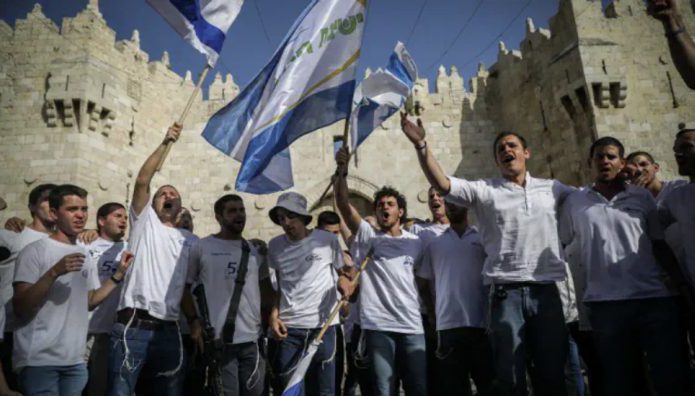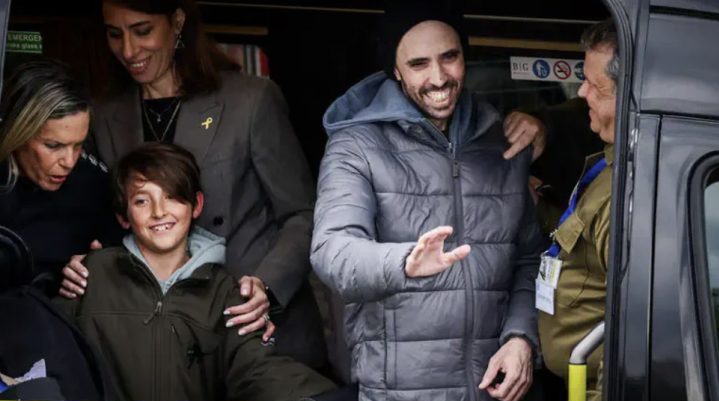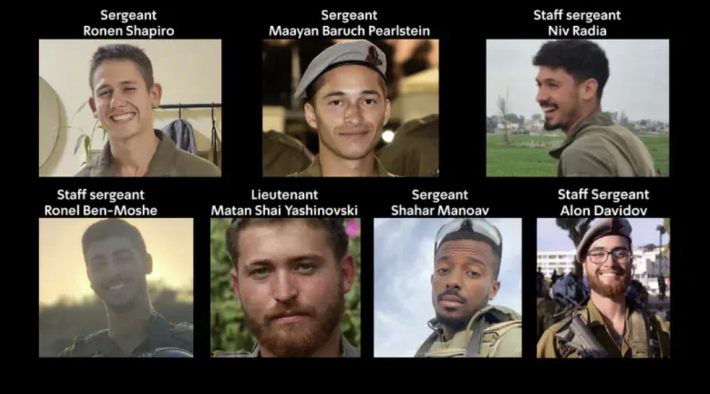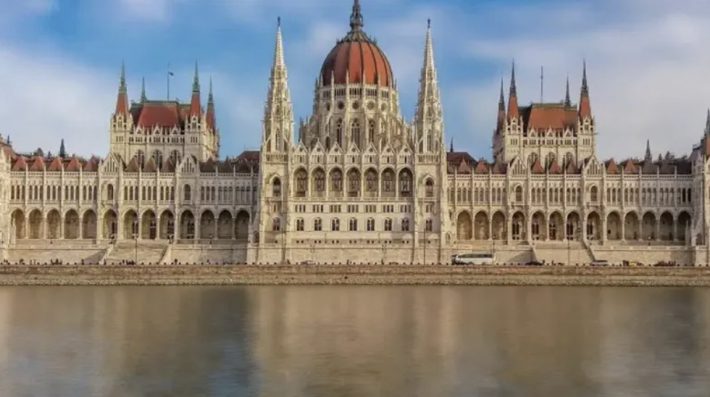Israel is now gearing up[ to celebrate Jerusalem Liberation Day while IDF forces are preparing for the Gideon’s Chariots offensive in Gaza. Once again, the country moves from joy to worry, from thanksgiving to prayer. Op-ed.
We just returned from a wonderful trip to Israel where we celebrated Passover. We were also privileged to be there during the period of the three Yoms (Days) of Yom HaShoah (Holocaust Memorial Day), Yom HaZikaron (Memorial Day) and Yom HaAtzmaut (Independence Day). And now we join the joy as Israel prepares for Jerusalem Liberation Day.
What we experienced on those auspicious days in Israel is unlike anything we perceived as we marked these same occasions here in the US. I can’t help but reflect on the mix of emotions we felt that made it so unique.
First came the Yom HaShoah observance. It was unlike any I had experienced in the US. Both my father Z”L and father-in-law Z”L were miraculous Holocaust survivors, who had lived through the horrors of Auschwitz. It was thus an especially solemn and even grim day, as we remembered them and all the others who perished in the Holocaust and since. In Israel, it’s not just a local event attended by a few interested persons. It’s a whole nation marking the occasion. Everywhere we went, we felt the gravity of the moment.
While we were told what to expect when the siren sounded, it was nevertheless stunning to be a part of the scene. Everyone, everywhere around us, just stopped in their tracks. Traffic came to a standstill and people stood respectfully next to their vehicles. We all bowed our heads in silence, as we quietly remembered. The feeling of seeing everyone join in the observance was overwhelming and my eyes welled up in tears. This time it wasn’t just a few Jews huddled together or even an assembly of many; it was an entire nation observing the moment in unison. I couldn’t help but feel a sense of pride too in the respect and sensitivity everyone displayed to each other.
We also traveled by train to Haifa to pray at the graves of two of my wife’s grandparents, who had survived the Holocaust and other relatives who were buried there. The family came out to join with us in our saying of Psalms and traditional prayers of remembrance at the gravesites. Remember, Never Forget was the overriding theme of the day.
A few days later came the observance of Yom HaZikaron. We traveled to Israel’s National Cemetery at Mount Herzl the day before to say prayers at the gravesite of Michael Levin Z”L, a true hero. He was an American born lone-soldier who was killed in action in the Second Lebanon War.
On Yom HaZikaron we attended the program conducted by the Lone Soldier Center on Ammunition Hill in Jerusalem, known as the Michael Levin Base, marking the occasion. Michael Oren, the former Israeli Ambassador to the US and himself an American born lone soldier, spoke. We heard heart-wrenching tales of suffering from mothers of children murdered in the horrible Hamas terrorist attack on October 7,, 2023. There was not a dry eye in the audience; everyone shared their pain. Rabbi Moshe Scheiner of the Palm Beach Synagogue also spoke.
As the day of Yom HaZikaron ebbed, we attended services at the Great Synagogue in Jerusalem. The Cantor and choir were amazing and the heartfelt chanting of prayers was at once solemn, beautiful and overwhelming. Then, just like that, it was night and in a blink of the eye the atmosphere changed.
As Yom HaZikaron ended and Yom HaAzmaut began, it was suddenly music and celebrations; there was no transition. I can’t help but marvel at the extraordinary resilience and determination of everyone present. One moment, we were bemoaning the tragic loss of life in the Holocaust and in defense of Israel, including in horrible terrorist attacks. The next, we were celebrating the miracle of survival and triumph of modern day Israel, with all its incredible successes and beauty. We were bonded together by the shared emotions, memories and values we collectively experienced and treasured. This existential reality set these moments apart from the other times we had observed these three days and our feelings in the moment were incomparable.
This bittersweet theme of confronting and overcoming all manner of challenges together, memorializing and sharing in the grief for those lost and then joining with one another in celebration of the survival and triumph of Am Yisrael resonates throughout the ages. Soren Kierkegaard might have explained this all as a matter of exercising the moral courage to grieve and religious courage to rejoice. However, what we felt in Israel on those three days was a whole other dimension of experience.As Yom HaZikaron ended and Yom HaAzmaut began, it was suddenly music and celebrations; there was no transition. I can’t help but marvel at the extraordinary resilience and determination of everyone present. One moment, we were bemoaning the tragic loss of life in the Holocaust and in defense of Israel, including in horrible terrorist attacks. The next, we were celebrating the miracle of survival and triumph of modern day Israel, with all its incredible successes and beauty. We were bonded together by the shared emotions, memories and values we collectively experienced and treasured. This existential reality set these moments apart from the other times we had observed these three days and our feelings in the moment were incomparable.
This bittersweet theme of confronting and overcoming all manner of challenges together, memorializing and sharing in the grief for those lost and then joining with one another in celebration of the survival and triumph of Am Yisrael resonates throughout the ages. Soren Kierkegaard might have explained this all as a matter of exercising the moral courage to grieve and religious courage to rejoice. However, what we felt in Israel on those three days was a whole other dimension of experience.
The Talmud expresses it most succinctly in the artful phrase that a person should not celebrate among those weeping or weep among those celebrating. We must be respectful of each other’s circumstances and somehow manage to offer support despite how we might personally feel at the time.
Rabbi Eliezer Papo, in his 19th Century work, the Pele Yoetz (Chapter 99:2), offers a nuanced explanation of how this antithetical mix of emotions is reconciled. He notes we don’t allow an individual to suffer alone in grief. We also don’t permit a person joyously to celebrate good events alone. We are all brethren and feel and act as if we are all figuratively of one heart and body. Thus, if one part of the body public hurts then we all hurt. Our empathetic hearts feel the suffering of others, as well as, rejoice in their success. Even if we don’t exactly feel that way because of personal burdens, nevertheless, it is unseemly to act otherwise. We are, therefore, compelled to sublimate our personal feelings and channel them in support of our brethren on these occasions.
Israel is now gearing up[ to celebrate Jerusalem Liberation Day while IDF forces are preparing for the Gideon’s Chariots offensive in Gaza. Once again, the country moves from joy to worry, from thanksgiving to prayer
Visit Israel as soon as it’s possible. There’s no substitute for actually being there, meeting the people and personally soaking up the extraordinary atmosphere of this very special place.





